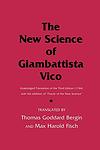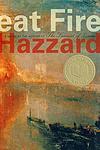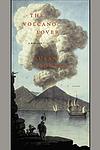The Greatest "Naples" Books of All Time
Click to learn how this list is calculated.
This list represents a comprehensive and trusted collection of the greatest books. Developed through a specialized algorithm, it brings together 284 'best of' book lists to form a definitive guide to the world's most acclaimed books. For those interested in how these books are chosen, additional details can be found on the rankings page.
Genres
Countries
Date Range
Reading Statistics
Click the button below to see how many of these books you've read!
Download
If you're interested in downloading this list as a CSV file for use in a spreadsheet application, you can easily do so by clicking the button below. Please note that to ensure a manageable file size and faster download, the CSV will include details for only the first 500 books.
Download-
1. My Brilliant Friend by Elena Ferrante
This novel tells the story of two friends, Elena and Lila, growing up in a poor neighborhood in Naples, Italy in the 1950s. Their intense, complicated friendship is marked by competition, mutual respect, and deep affection. As they navigate the challenges of adolescence, including family drama, academic struggles, and romantic entanglements, their bond is tested and transformed. The narrative explores themes of female friendship, social class, education, and the struggle for personal autonomy in a patriarchal society.
-
2. The New Science by Giambattista Vico
"The New Science" is a groundbreaking philosophical work that proposes a new approach to the study of society, history, and the nature of human behavior. The author argues that human beings are the creators of their own history, culture, and society, and that they can therefore understand these phenomena in a way that they cannot understand the natural world. He also introduces the concept of a cyclical theory of history, where societies rise, develop, and eventually decline, only to rise again in a different form. The book has had a profound influence on a range of fields, including anthropology, sociology, and history.
-
3. Naples 44 by Norman Lewis
This book is a vivid personal diary of a British intelligence officer stationed in Naples during the aftermath of the city's liberation in World War II. The narrative captures the chaotic and harrowing conditions of a city under military occupation, as the author meticulously documents the daily struggles of the local population amidst ruins, as well as the rampant corruption, black market dealings, and the complex interplay of cultures brought together by the war. His keen observations offer a poignant and deeply human portrayal of the resilience of civilians and soldiers alike, trying to navigate the moral ambiguities and the physical devastation of wartime Naples.
-
4. L'iguana by Anna Maria Ortese
The novel revolves around the story of a disillusioned and impoverished nobleman who, during his stay on a desolate Atlantic island, encounters a mysterious iguana-like creature that is actually an enchanted princess. As their friendship develops, the nobleman becomes determined to break the curse that binds her. The narrative, rich in symbolism and allegory, explores themes of isolation, the clash between modernity and tradition, and the nature of humanity's relationship with the otherworldly, all set against the backdrop of a decaying aristocracy and the haunting beauty of the remote island landscape.
-
5. The Neapolitan Novels by Elena Ferrante
"The Neapolitan Novels" is a four-part series that explores the intricate and lifelong friendship between two women from Naples, Italy. The series spans several decades, beginning in the 1950s, and provides a detailed examination of the women's lives, struggles, and the societal pressures they face. The narrative delves into themes of identity, friendship, love, violence, and socio-political changes in post-war Italy. The series is known for its rich character development and vivid portrayal of female friendship.
-
6. Troubling Love by Elena Ferrante
This novel follows a woman who returns to Naples after her mother's mysterious death, determined to understand the enigmatic life her mother led. As she delves into her mother's past, she uncovers a web of secrets and discovers more about her own identity in the process. The narrative explores themes of mother-daughter relationships, identity, and the power of the past.
-
7. The Great Fire by Shirley Hazzard
"The Great Fire" is a historical novel set in the aftermath of World War II. The story follows a British war hero, Aldred Leith, who is sent to occupied Japan to research the effects of the war on the country's culture. During his stay, he falls in love with a young girl, Helen, who is the daughter of the Australian camp commander. Despite the age difference and societal expectations, the two form a deep bond. The book explores themes of love, war, cultural change, and personal transformation.
-
8. The Rover by Aphra Behn
"The Rover" is a Restoration comedy that centers around the escapades and romantic misadventures of a group of English cavaliers at the Carnival in Naples. The plot weaves together the tales of love, disguise, and mischievous intrigue as the charming but rakish protagonist and his friends navigate the complex social landscape, pursuing love interests and evading the consequences of their actions. The play tackles themes of love, honor, and the social roles of women, while also offering a humorous and satirical take on the mores of the time. The narrative culminates in a series of mistaken identities and unexpected revelations, ultimately leading to marriages and reconciliations in true comedic fashion.
-
9. The Volcano Lover by Susan Sontag
"The Volcano Lover" is a historical novel set in the 18th century, revolving around the love triangle between Sir William Hamilton, his wife Emma Hamilton, and the naval hero Admiral Horatio Nelson. The narrative delves into the complexities of their relationships against the backdrop of the tumultuous political and social landscape of the time, including the eruption of Mount Vesuvius, the Neapolitan court, and the Napoleonic Wars. The book weaves a rich tapestry of passion, power, and the arts, exploring themes of obsession, the nature of heroism, and the impact of historical events on personal lives.
-
10. The Skin by Curzio Malaparte
This book is a vivid and harrowing account of the liberation of Naples by the Allies during World War II, as seen through the eyes of the author, who serves as a liaison officer with the American forces. It delves into the moral and physical decay that war brings to a city and its inhabitants, exploring themes of survival, the price of liberation, and the complex relationship between conquerors and the conquered. Through a series of grotesque, often shocking episodes, the narrative portrays the desperation and degradation of a society stripped of dignity, where human skin becomes a metaphor for the erosion of humanity itself. The work is a powerful, if unsettling, examination of the human condition under the extreme pressures of war, betrayal, and occupation.
Reading Statistics
Click the button below to see how many of these books you've read!
Download
If you're interested in downloading this list as a CSV file for use in a spreadsheet application, you can easily do so by clicking the button below. Please note that to ensure a manageable file size and faster download, the CSV will include details for only the first 500 books.
Download








